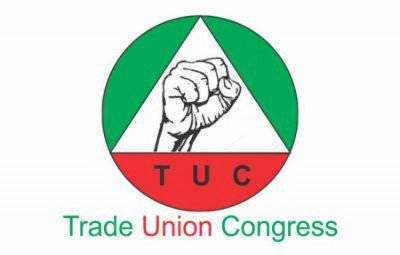Hamonise minimum wage for quick assent – TUC tells NASS
Mr Bobboi Kaigama, the President of Trade Union Congress of Nigeria (TUC), on Monday called for quick hamonisation of the N30,000 national minimum wage bill to enable President Muhammadu Buhari assent to it. Kaigama spoke to the News Agency of Nigeria (NAN) in Lagos on the implementation of the new minimum wage. NAN reports that […]

Mr Bobboi Kaigama, the President of Trade Union Congress of Nigeria (TUC), on Monday called for quick hamonisation of the N30,000 national minimum wage bill to enable President Muhammadu Buhari assent to it.
Kaigama spoke to the News Agency of Nigeria (NAN) in Lagos on the implementation of the new minimum wage.
NAN reports that the leadership of the Nigeria Labour Congress had urged the President to sign and implement the new wage before the end of the 8th National Assembly.
The TUC president said that the House of Representatives and the Senate needed to harmonise the agreed sum and pass it to the President for his assent.
”The N30,000 figure is one, but the aspect of law might not be the same. There is the need to come together and harmonise, produce a clean copy and forward to Buhari to sign.
”If that is not done as soon as possible, it will be difficult for the President to sign and implement the agreed national minimum wage.
”The day Buhari signs the new minimum wage bill, it becomes a law effective from that day,” he said.
The labour chief said that implementation would be seamless since the Federal Government had said that it included its provision in the budget, but might take a while in some states that had not included it in their budget.
He urged the private sector not to delay its implementation as soon as the bill is enacted into law.
The TUC president advised the government to look into the issues of punishment for minimum wage defaulters and frequent review of the process.
He also said that Value Added Tax should not be tied to the implementation of the new wage, particularly in the public sector.
”VAT is paid by consumers; it is paid by the lower class, while the business conglomerates and corporate organisations don’t pay appropriate tax.
”It is unfair to tell workers who pays appropriate tax that you will tie VAT to minimum wage. The organised labour disagrees with the government,” he said.
Kaigama said that labour would resist any plan to fund the new minimum wage through increase in VAT. (NAN)
